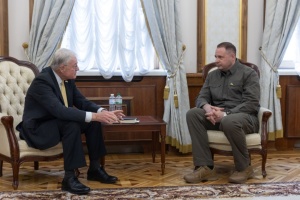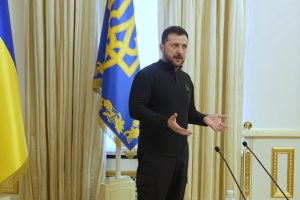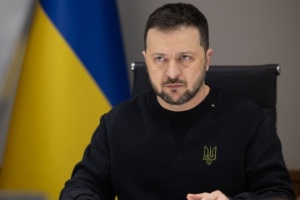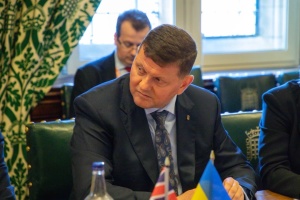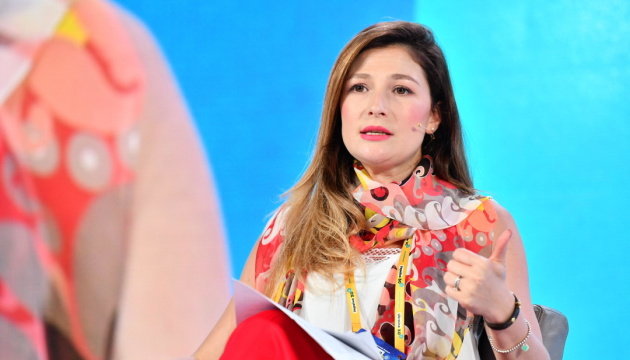
Dzheppar calls on UNIC to promote de-occupation of Crimea
As the Ministry of Foreign Affairs informed, Dzheppar takes part in the UNIC meeting under the chairmanship of Oleksandr Korniyenko, First Deputy Speaker of the Verkhovna Rada of Ukraine, and Attila Mesterházy, Vice-President of the NATO Parliamentary Assembly, in Odesa on October 26-27.
Delegations from the United Kingdom, Greece, Spain, Latvia, Lithuania, Norway, Poland, Portugal, and Turkey attend the UNIC events.
A separate item on the meeting agenda is the discussion of the current situation in the temporarily occupied Crimea.
Speaking to the audience, Dzheppar stressed that the de-occupation of the peninsula and its reintegration remained one of the main tasks of Ukraine. To this end, as well as to protect the norms and principles of international law, Ukraine, together with 46 foreign partners, created the Crimea Platform.
"The inaugural summit of the Crimea Platform on August 23 in Kyiv demonstrated the strength of Ukraine's partnership with NATO, EU, and G7 member states in countering further attempts by Russia to undermine the world order," the first deputy minister said.
She thanked the participants for setting up a support group for the Crimea Platform in the NATO Parliamentary Assembly, which is becoming an active tool for parliamentary diplomacy to advance the goals and objectives of this new international format for the de-occupation of Crimea.
"It is crucial that the parliaments of NATO member states put on the agenda of discussions and meetings of the Parliamentary Assembly specific proposals to counter Russian aggression against Ukraine, protect human rights in the temporarily occupied territories, and reflect these issues in working and final documents approved by NATO PA," Dzheppar said.
She noted that the first year after the summit is important for the practical development of the Crimea Platform. Dzheppar announced the next major international ministerial event within the Crimea Platform – the Black Sea Security Conference, which will be held in Kyiv on February 25-26, 2022, and will focus on the impact of security in the wider Black Sea region on Euro-Atlantic and global security, militarization of Crimea, and hybrid war tools.
The first deputy minister also said that networks of operational communication between the ministries of foreign affairs of the participating states were being established within the Crimea Platform to ensure an ongoing dialogue on important issues, such as rapid response to crises, gross violations of human rights or international humanitarian law in Crimea, security threats, etc.
The Ukraine–NATO Interparliamentary Council (UNIC) was established in 2003 in accordance with the provisions of the Charter on a Distinctive Partnership between Ukraine and NATO. Its main task is to provide parliamentary assistance for the proper implementation of the Annual National Programs under the auspices of the Ukraine–NATO Commission, as well as to analyze the results of their practical implementation.
Photo credit: Ministry of Foreign Affairs of Ukraine
ol


